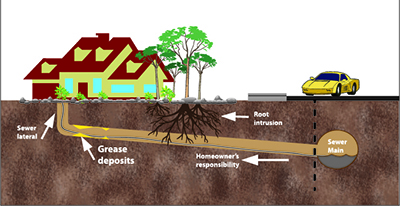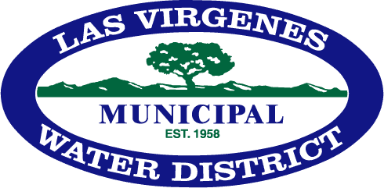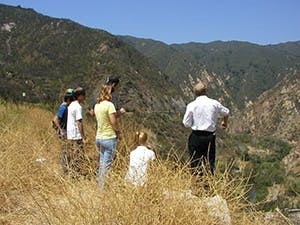Protecting the Sewer System
No one really thinks about the sewer system until there’s a problem. For instance, when the tree roots in your front yard clog the sewer line from your home to the street, this causes a backup into your home. YUCK, no one wants that. But unfortunately it happens.

So how can you help?
Las Virgenes MWD and Department of Public Works (DPW) maintain the sewer mains in the area, however, you are responsible for the maintenance of the lateral from your home to the main sewer line. DPW has a great explanation of what your responsibilities are – read more here on their site: Inspecting Your Sewer Lateral
Sewer overflows are an EMERGENCY
If you ever see sewage bubbling out of a manhole cover or see evidence of a sewer line problem, call us immediately at (818) 251-2100; don’t assume someone else has reported the incident.
FOG is a big contributor to sewer blockages. Cooking grease, along with butter, milk, ice cream and other oily, fatty substances build up along pipe walls restricting the flow of wastewater (i.e. sewage) leaving your home. When a blockage forms, wastewater can back up into your house or onto your street. These backups can cause costly property damage, as well as being a concern to public health and the environment.
Try these helpful ideas, instead of pouring FOG down the drain:
- Pour used cooking grease into a heat-safe container, such as an empty coffee can, and store it in the refrigerator. Once the grease has hardened, seal the top and place the can in the trash.
- Wipe greasy pots, dishes and utensils with a paper towel before washing.
- Keep food scraps OUT of the garbage disposal. Instead, catch them in the sink with a strainer and place them in the trash or compost bin.
- Mix used cooking grease with an absorbent material such as cat litter or coffee grounds, place it in a sealed container and dispose of it in the trash.
Only these four Ps should go down a toilet:
- Pee
- Poop
- Paper (toilet)
- Puke
But what about Flushables? We can flush baby wipes down the toilet, right? Watch this video and think again! Get a real understanding of the difference between toilet paper and flushables! (This is not gross, promise!)
Why have a garbage disposal if you can’t use it? Of course you can use it. Avoid the following:
- Use the disposal for soft foods that you cannot put into a compost bin.
- Always remove plastic stickers from fruits and vegetables and place them in the trash.
- Avoid grinding hard materials such as egg shells, coffee grounds and bones.
- We also have a list of What Not to Flush.
Please do not flush unused or expired prescription or over-the-counter medications down the sink or toilet. Pharmaceuticals contain chemicals that cannot be removed during the wastewater treatment process. Therefore, any pharmaceuticals flushed down the drain eventually enter our local water bodies, endangering aquatic life and water quality in the Malibu Creek Watershed.
Unused and expired medications should be:
- Taken to a drug take-back location. Search drug take-back locations near you.
OR - Placed in a seal-able container or bag and then placed in the trash.
Visit LA County's “No Drugs Down the Drain” site to learn more about this initiative.


